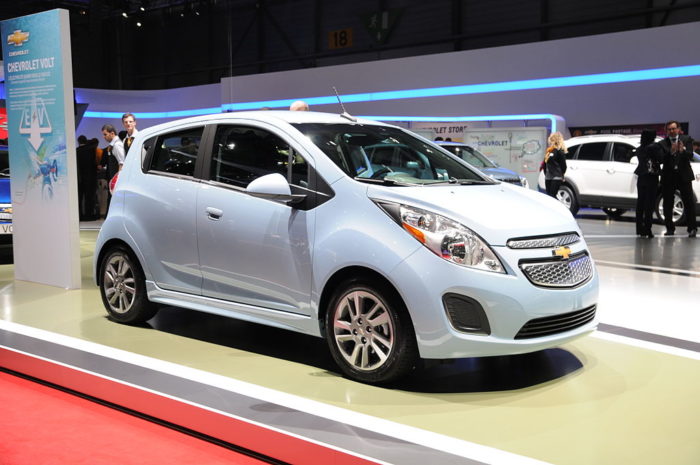
Image Credit: Norbert Aepli/Wikikedia Commons
Consumer Reports magazine is well known for its quality and resale rankings of cars and trucks. Now, there’s a website where you can look up the green performance of a vehicle you’re interested in.
The American Council for an Energy-Efficient Economy (ACEEE) launched a website called GreenerCars.org on February 5. The website launch was coordinated with the publication of the ACEEE’s newest list of the most environmentally friendly vehicles on the road.
At the top of the this year’s “Greenest List” is the Mercedes-Benz Smart Fortwo electric drive convertible/coupe. The Lilliputian two-seater retails for between $25,000 and $28,000, according to the website AutoGuide.com. The Chevrolet Spark EV was second, along with the Fiat 500E, while Toyota Prius, Nissan Leaf and other familiar names filled out the rest of the top 12.
In addition to creating the “greenest” list, the website keeps a “greener choice” selection, which includes vehicles that are more widely available and in a size more buyers will be interested in.
At the other end of the spectrum, there’s a “meanest” list of the vehicles that do the most damage to the environment. This year’s top pick is the Ram 2500 pickup with a score of 17 (the Smart Fortwo was scored at 61).
How the scores are calculated
Cars are rated on a scale of 0 to 100; the average score is 37. Evaluators use a variety of metrics that go beyond fuel efficiency and emissions, as reported by the U.S. Environmental Protection Agency. Other factors are vehicle mass (the curb weight) and the mass and composition of batteries for hybrids and plug-in vehicles.
“Tailpipe emissions and fuel efficiency are clearly important, but impacts also depend on the type of fuel used and the materials that go into manufacturing the vehicle,” the website explains. “A scientific approach for estimating the environmental impacts of a product is known as lifecycle assessment, since it traces the impacts of a product from ‘cradle to grave’: materials production and product manufacturing; emissions and other effects when the product is in use; through end-of-life effects of disposal and recycling.”
The system takes into account the environmental damage done by each type of pollutant the vehicle generates, including societal costs of illness and premature deaths, and produces a cost per mile (cents/mile) for each vehicle. (A complete explanation of the methodology is available at the website.)
GreenerCars offers free access to all scores from the 2000 model year forward. This is the 18th year ACEEE has rated vehicles.
Weekly Newsletter
Get building science and energy efficiency advice, plus special offers, in your inbox.














0 Comments
Log in or create an account to post a comment.
Sign up Log in